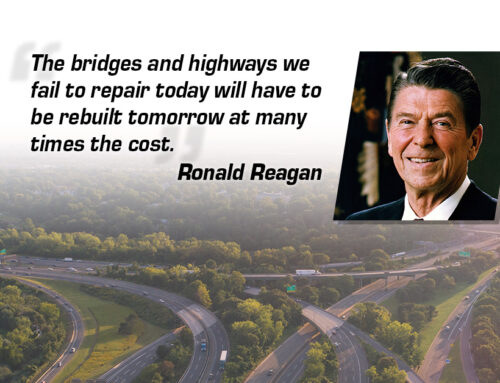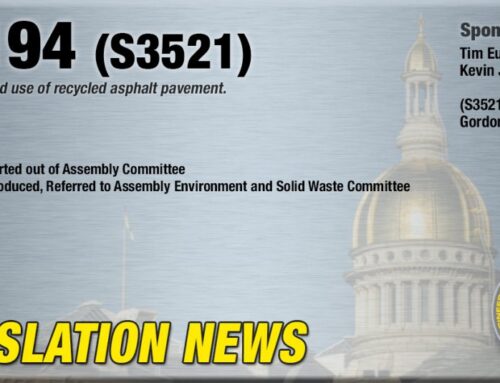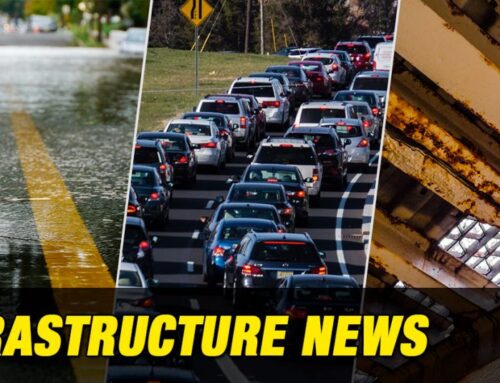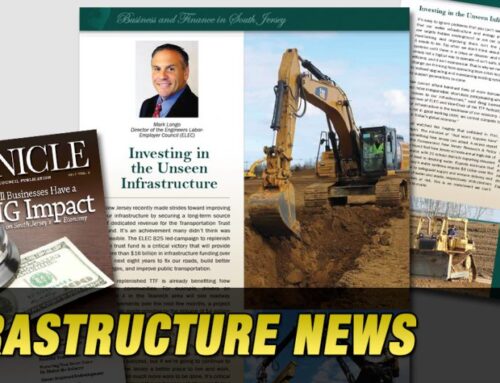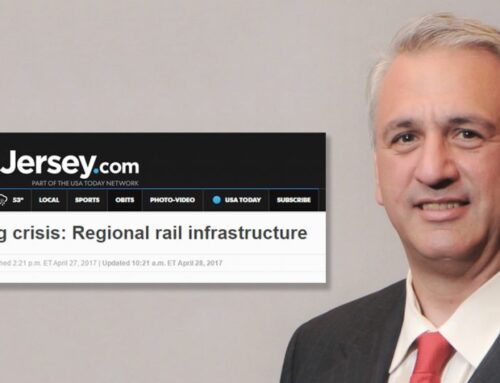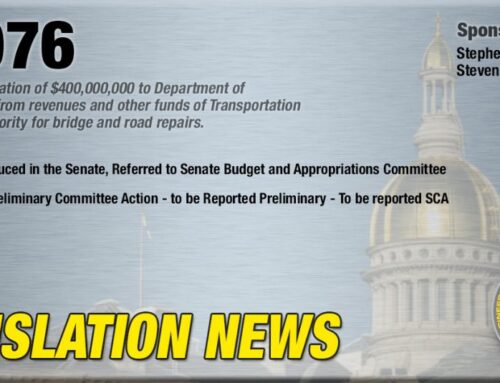Boston’s WBUR recently interviewed Dr. Nick Vitillo, Senior Research Engineer at the Center for Advanced Infrastructure and Transportation (CAIT) at Rutgers University. If you haven’t heard of CAIT, it’s one of five National University Transportation Centers, making it one of the pre-eminent Infrastructure and Transportation research centers in the country.
Dr. Vitillo says some interesting things about the state of NJ’s infrastructure which bear worth repeating:
About the challenges of infrastructure in the most densely populated state in the nation…
New Jersey’s roads makes it difficult to do all the repairs because there are so many people on the roads at the time when you’re trying to do the work, that forces us to do a lot of the state work during the night when the amount of people is greatly reduced.
What he thinks is the worst road in NJ…
When I think of some of the worst roads that we have I think of Route 130…it’s an old concrete roadway…because of its age and the amount of traffic that travels on it…it’s old and can only be fixed a piece at a time.
How the federal and state transportation funding problems affect NJ’s ability to maintain the roads…
Without stable funding from either the USDOT or New Jersey’s Transportation Fund it’s hard to plan what roads need to be repaired and when they to be repaired…that’s the biggest problem.
How NJ has relied on bonds (debt) to maintain NJ’s roads…
…due to lack of funding and the increase in funding necessary to maintain these roadways and build new roadways and bridges, they had to put out bonds and right now paying back the bonds is actually using the majority of the trust funds money that comes in annually. so there’s less and less money to do the actual work and more and more money needed just to pay back the bonds.
How NJDOT is trying to reduce costs…
The pavement preservation techniques being used by NJDOT are relatively new to the state. In the past we’ve done pavement rehabilitation where we’ve waited until the pavement has reached a certain point in its life and done some major rehabilitations to that pavement. With pavement preservation techniques we are able to address the needs of that pavement much earlier in its life at a much reduced cost.
The full interview can be heard here:
SOURCE: http://hereandnow.wbur.org/2015/07/27/new-jersey-roads-poor
We encourage everyone to get involved in a substantive, fact-based discussion about the state of NJ’s transportation infrastructure.


